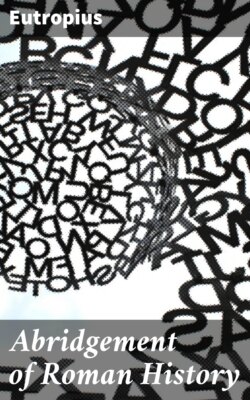Читать книгу Abridgement of Roman History - Eutropius - Страница 23
На сайте Литреса книга снята с продажи.
Footnotes
ОглавлениеTable of Contents
1 ↑ The words ut, qui plurimum minimumque, tradunt, which occur in all editions before the date, are not translated; for nothing satisfactory has yet been said as to their grammatical construction. Madame Dacier suggested that we should supply ut eos praeteream qui. But praeteream is not to the purpose. Hausius's explanation is ut ego inter eos tradam qui plurimum minimumque tradunt. The Berlin edition of 1791 interprets better: ut medium inter eos qui----tradunt, ego tradam. There is no doubt that Eutropius meant that he would take a middle point between those who give the highest and those who give the lowest date; but the words to be supplied for the construction seem not to have been yet discovered. Perhaps the sense is "as those say who give the highest and lowest dates, and take a middle point between them," something equivalent to the words in italics being intended to bo understood. The same words occur in b. x. c. 18, with the construction equally uncertain.
2 ↑ Parens et ipse Tarquinii. This passage perplexed the commentators, until it was discovered that parens was used by writers of the lower ages for cognatus; for which sense of the word Tzschucke refers to Lampridius in Alex. c. 67, and to Casaubon on Capitolinus in M. Philosoph, c. 5. See Scheller's Lexicon, s.v. "Parens".
3 ↑ Ut collatis e populo nummis, sumptum habuerit sepulturae. "He had the expense of his funeral from money contributed by the people".
4 ↑ 479 B.C.
5 ↑ Damnati sunt. Appius and Oppius, before the day for their trial came, committed suicide. Their colleagues went into banishment voluntarily, as appears from Livy. Claudius was sentenced to death, but allowed to go into exile through the intercession of Virginius. See Liv. iii. 58.
6 ↑ Postea tamen. The word tamen, which disturbs the drift of the passage, is not translated. The text seems hardly sound. Livy tells the story differently.
